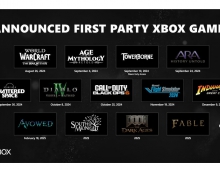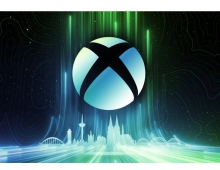
Xbox sales up, Microsoft sees market share gain
Microsoft sold more Xbox video game consoles in the June-ended quarter than it had first expected, though a price cut midway through the quarter played only a small part, an executive said on Thursday.
While not breaking out the console's specific sales in the quarter, Microsoft said its Home and Entertainment division, which is primarily the Xbox operations, saw revenue rise 8 percent in the fiscal fourth quarter.
In an interview with Reuters after Microsoft's quarterly earnings, Robbie Bach, the company's "chief Xbox officer," said the Xbox was gaining market share in the United States and Europe.
"Certainly the price cut probably had some effect, though I think most people would tell you the effect has been pretty modest," Bach said.
The sudden decision in mid-May to cut the Xbox's price to $179 from $199 came after chief rival Sony Corp. cut the price of its market-leading PlayStation 2 console to $179 from $199.
Xbox remains a distant second behind PS2. Through May, according to data from NPDFunworld, the PS2 had a U.S. installed base of 17.7 million units.
The console market has largely become a two-horse race for share, with Nintendo Co. Ltd.'s GameCube underperforming all expectations and lagging behind the Xbox and PS2 in most markets.
Since the November 2001 launch of Xbox, Microsoft said it has sold 9.4 million units worldwide, and by June 2004 it said it expects that number to rise to between 14.5 million and 16 million units. The total units sold during fiscal 2003 was 5.5 million.
The majority of the installed base to date, 6.2 million units, is in North America, with 2.2 million in Europe, the Middle East and Africa, and 1 million in the Asia-Pacific region, which is primarily the Japanese market. The Xbox, by Microsoft's own admission, has struggled in Japan.
"We're making progress from an organizational perspective" in Japan, Bach said. "The share numbers haven't really moved one way or another."
Xbox Live, Microsoft's online gaming service, finished the year with about 500,000 subscribers, the company said, with expectations it will reach 1 million by next summer.
The attach rate, or average number of games sold per console, stood at about 5.4:1 in the United States and 5:1 globally as of June 30, Microsoft said.
In the past, weak Xbox sales have actually been good for Microsoft's bottom line, since the company loses an amount believed to be $75 or more on each Xbox it sells.
Bach said Microsoft's focus now is on more-lucrative game sales. The heavily anticipated "Halo 2" is expected next spring, and a sequel to the successful "Project Gotham Racing" is set for this fall.
"We're in the phase of the console cycle where it's about the games," he said.
In an interview with Reuters after Microsoft's quarterly earnings, Robbie Bach, the company's "chief Xbox officer," said the Xbox was gaining market share in the United States and Europe.
"Certainly the price cut probably had some effect, though I think most people would tell you the effect has been pretty modest," Bach said.
The sudden decision in mid-May to cut the Xbox's price to $179 from $199 came after chief rival Sony Corp. cut the price of its market-leading PlayStation 2 console to $179 from $199.
Xbox remains a distant second behind PS2. Through May, according to data from NPDFunworld, the PS2 had a U.S. installed base of 17.7 million units.
The console market has largely become a two-horse race for share, with Nintendo Co. Ltd.'s GameCube underperforming all expectations and lagging behind the Xbox and PS2 in most markets.
Since the November 2001 launch of Xbox, Microsoft said it has sold 9.4 million units worldwide, and by June 2004 it said it expects that number to rise to between 14.5 million and 16 million units. The total units sold during fiscal 2003 was 5.5 million.
The majority of the installed base to date, 6.2 million units, is in North America, with 2.2 million in Europe, the Middle East and Africa, and 1 million in the Asia-Pacific region, which is primarily the Japanese market. The Xbox, by Microsoft's own admission, has struggled in Japan.
"We're making progress from an organizational perspective" in Japan, Bach said. "The share numbers haven't really moved one way or another."
Xbox Live, Microsoft's online gaming service, finished the year with about 500,000 subscribers, the company said, with expectations it will reach 1 million by next summer.
The attach rate, or average number of games sold per console, stood at about 5.4:1 in the United States and 5:1 globally as of June 30, Microsoft said.
In the past, weak Xbox sales have actually been good for Microsoft's bottom line, since the company loses an amount believed to be $75 or more on each Xbox it sells.
Bach said Microsoft's focus now is on more-lucrative game sales. The heavily anticipated "Halo 2" is expected next spring, and a sequel to the successful "Project Gotham Racing" is set for this fall.
"We're in the phase of the console cycle where it's about the games," he said.





















